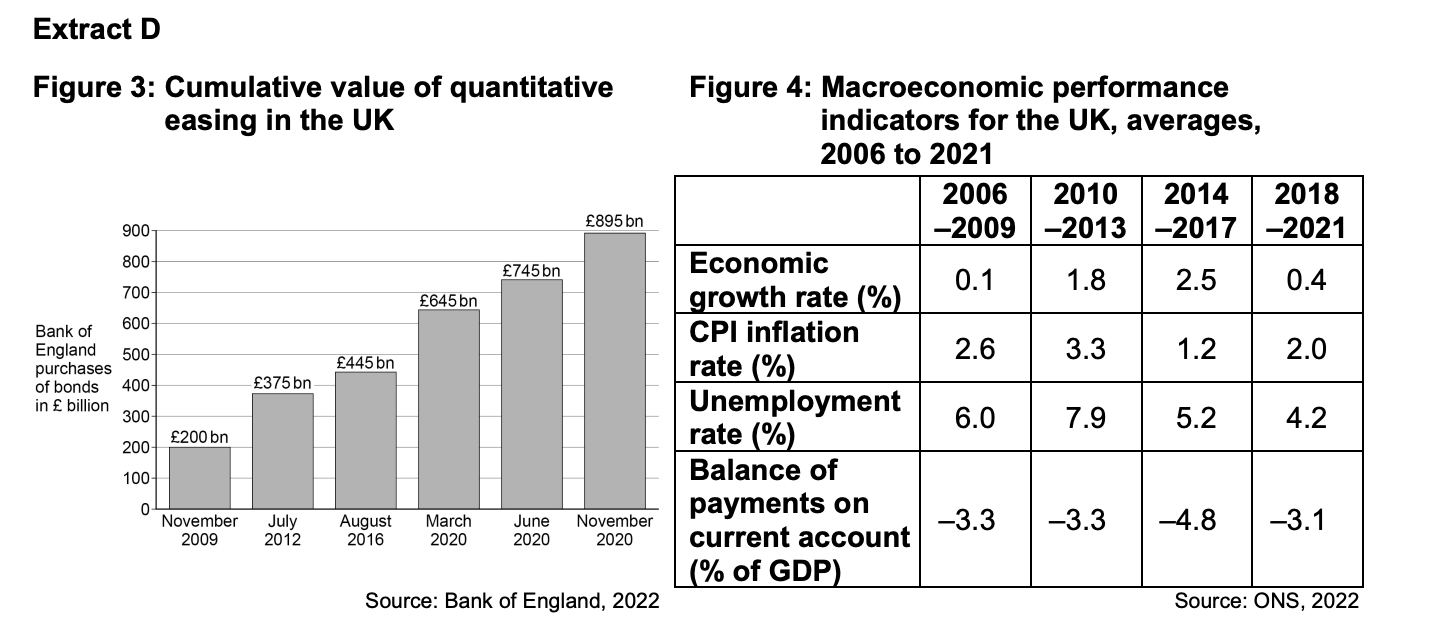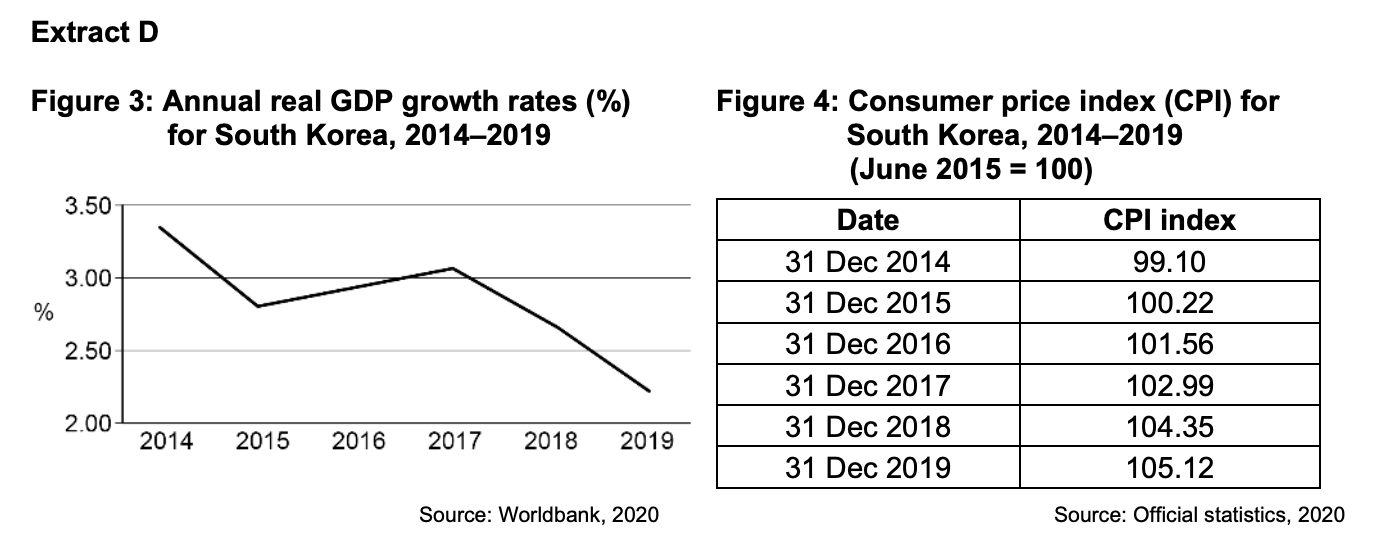Extract B: Irish corporation tax
Ireland has dropped its low-tax policy of the past 18 years, which had helped to persuade some of the world’s biggest companies, including Google and Facebook, to site their European headquarters in Ireland. Countries who are members of the Organisation for Economic Co-operation and Development (OECD), have agreed to a minimum corporation tax rate of 15%. Initially, Ireland was one of nine countries that refused to join the scheme but they have now all agreed to do so.
The deal brings an end to the country’s 12.5% corporation tax rate that has applied since January 2003, which has been criticised in other EU countries and the UK, where higher corporation tax rates have applied. The new tax, which will be limited to firms with annual global revenues of over €750m, will come into force in 2023. According to some estimates, it will cost the Irish government between €800m and €2bn a year in lost tax revenue. Multinational corporations (MNCs) located in Ireland and elsewhere, employing up to 500 000 staff, could be affected.
Over the years, as a consequence of its low corporate tax policy, Ireland has attracted an estimated 1000 MNCs in the technology, finance and pharmaceutical sectors, including Pfizer, Intel, Yahoo, LinkedIn, TikTok, Apple, IBM and Twitter. Such is the importance of MNCs to the Irish economy, that figures released in May showed that just 100 companies accounted for almost 80% of government tax revenue. The figures exclude those sectors closed due to the lockdown, including hospitality and travel, but showed Ireland’s reliance on MNCs for employment and tax revenue. In 2020, about 32% of all jobs in Ireland were in MNCs and those employees contributed 49% of all taxes on income.
Source: News reports, 2021

